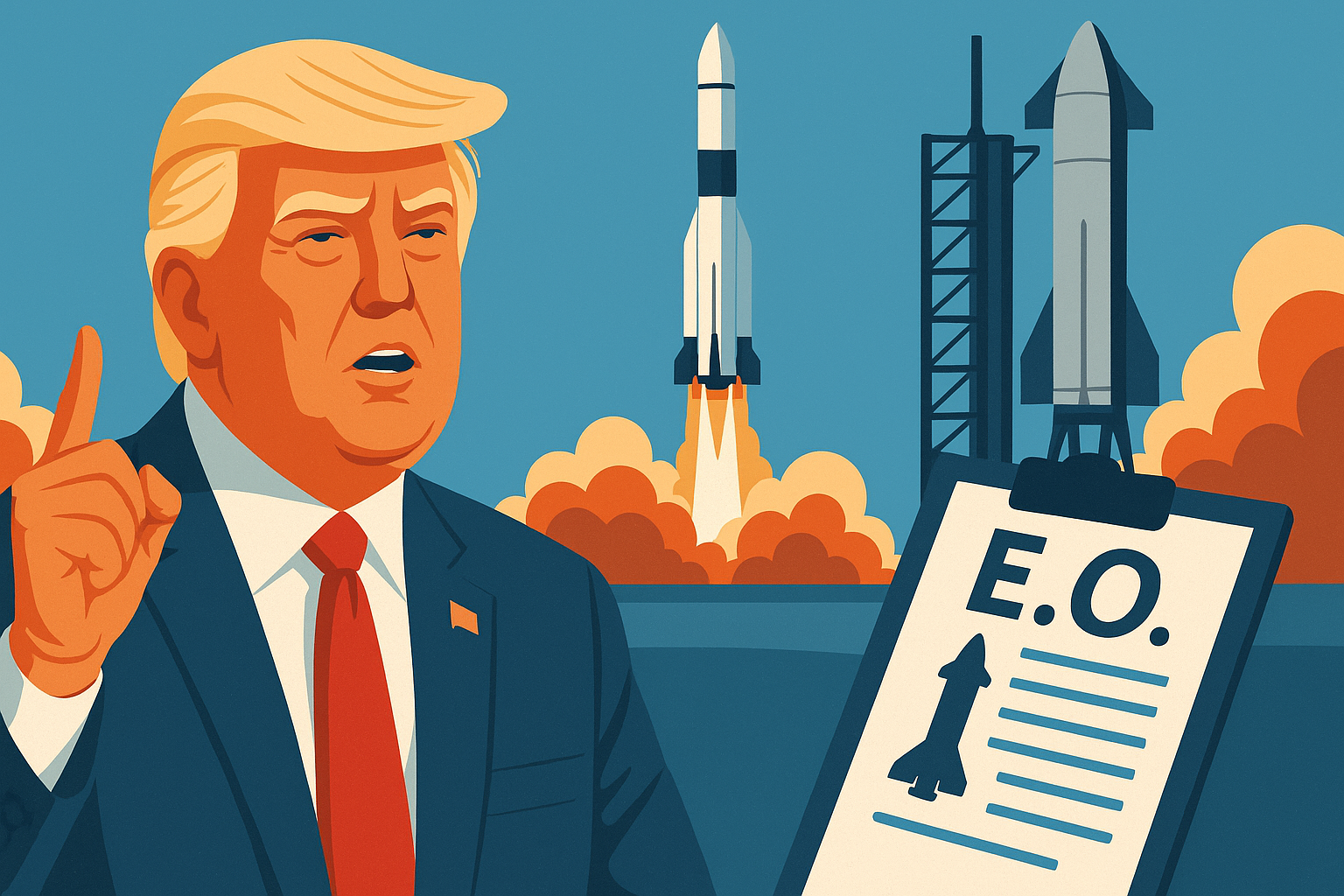President Donald Trump has signed an executive order that significantly eases federal regulatory restrictions on commercial spaceflight companies, a move expected to directly benefit Elon Musk’s SpaceX.
While SpaceX was not specifically named in the order, the company stands to gain the most due to its extensive government contracts, frequent launch schedule, and pivotal role in U.S. space missions.
Streamlining Launch Regulations
The order directs the U.S. transportation secretary to expedite or remove environmental reviews for launch approvals overseen by the Federal Aviation Administration (FAA). It also calls for eliminating outdated, redundant, or overly restrictive rules governing launch and re-entry vehicles.
The White House emphasized that the goal is to increase U.S.-based commercial rocket launches to ensure leadership in space exploration, defense systems, and space-based industries. Transportation Secretary Sean Duffy, who was recently appointed interim NASA administrator, hailed the order as “visionary,” saying it would allow the U.S. to lead “from earth travel to space travel.”
SpaceX Set to Benefit Most
The relaxed regulations are expected to favor private spaceflight companies, notably SpaceX and Jeff Bezos’ Blue Origin, both of which operate extensively in Texas. SpaceX, founded by Musk in 2002, leads the U.S. in launch frequency, deploying Starlink satellites using its Falcon 9 rockets from California and Florida.
Falcon 9 is NASA’s primary vehicle for transporting astronauts to the International Space Station via the Crew Dragon capsule — currently the only U.S. spacecraft capable of this mission. SpaceX also holds multi-billion-dollar contracts with NASA and the Department of Defense for launching satellites and other classified payloads.
The order comes as SpaceX prepares to launch its 400-foot Starship rocket from its South Texas Starbase later this month. Starship is key to Musk’s plans to send humans to Mars and central to NASA’s Artemis program to return astronauts to the Moon.
A History of Regulatory Disputes
For years, Musk has criticized what he calls “superfluous” regulations. In 2024, the FAA proposed $633,009 in civil penalties against SpaceX for alleged license violations during two 2023 launches — a move Musk vowed to challenge in court.
FAA data shows a record 148 licensed commercial space operations took place in 2024, a 30% increase from the previous year. The agency maintains that safety remains a priority while supporting commercial space progress.
Environmental Opposition
SpaceX’s aggressive testing approach, which Musk says accelerates innovation, has drawn criticism from environmental groups concerned about ecological damage. The South Texas Environmental Justice Network condemned FAA approval for SpaceX to increase annual Starship flight tests to 25.
In June, Mexican President Claudia Sheinbaum threatened legal action if investigations confirmed that debris from a failed Starship test caused pollution and marine life deaths in Tamaulipas.
Trump’s order is seen as a major win for Musk, potentially accelerating SpaceX’s launch schedule and giving the U.S. a stronger foothold in the new era of commercial space exploration.



